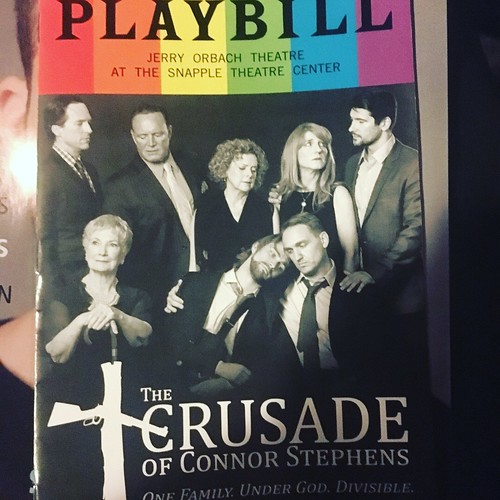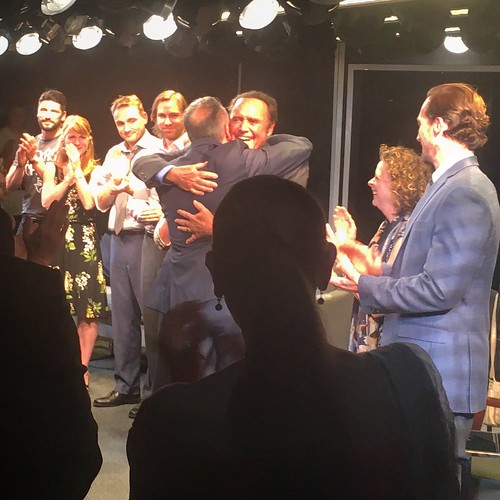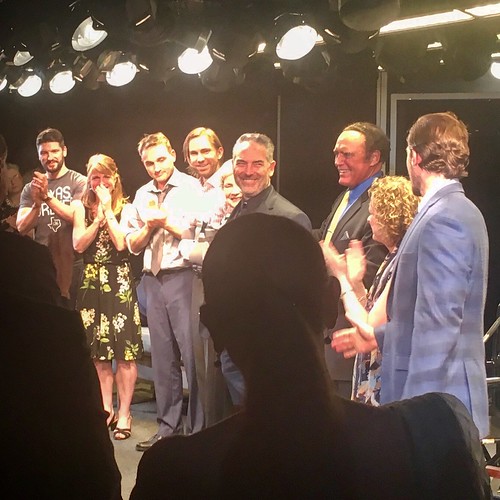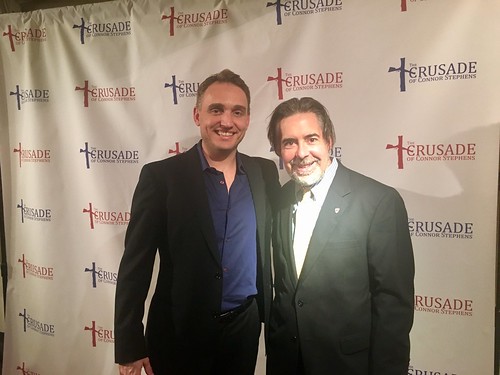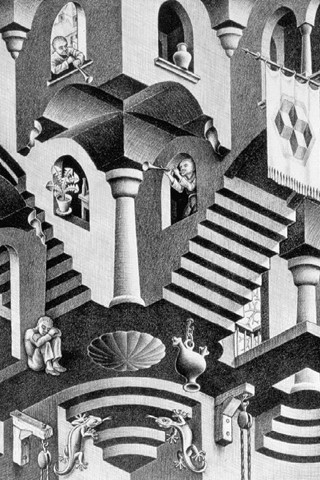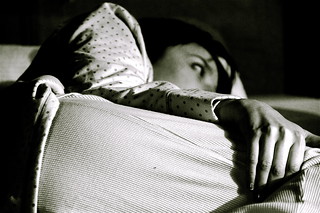3rd Sunday After Pentecost
Through the written word and the spoken word, may we come to know your living word. Amen.
I begin by offering my profound thanks to Mother Diana for the opportunity to reflect upon the word of God and the history of a movement with you today. She frequently refers to me as an “activist” which awakens some vague sense of guilt as I am not as active as I once was. From 2002 until 2014 I served with both The OASIS, our diocesan ministry to and with lesbian, gay, bisexual and transgender people, and Integrity, the churchwide LGBT advocacy group.
On the cover of your leaflet is a photo of the 2013 LGBT Pride March in New York. The march, which will take place later today, has been held on the last Sunday in June since 1969, commemorating the civil uprising that took place at the Stonewall Tavern that summer in response to years of systematic persecution of LGBT people by the police and mocking indifference from almost everybody else.
If you study the photo you’ll see familiar symbols: just about everybody you see is an Episcopalian or connected to the church in some way, and in fact the Episcopal Church is one of the largest single groups of participants in the March. On the banner in front and on the top of our float, barely visible a full city block away, are our church shield and the words “The Episcopal Church Welcomes You”.
That welcome was not and is not always something that could be counted on. In the summer of Stonewall, LGBT people in the church were pariahs like Hagar and her son in today’s first reading: they were perceived as a threat or dismissed as a joke, and not allowed to inherit the gift of community the church offered, unless they were willing to keep their relationships and very identity a secret. In 1974 a young English professor named
Louie Crew… remember that name, if you don’t know it already… telephoned Grace Cathedral in San Francisco asking how he and his husband might meet other gay Episcopalians. The staff there laughingly passed his call around the office, making him repeat his question for their amusement. That encounter led him to start a network called Integrity which grew to be the de facto voice of LGBT people within the Episcopal Church.
There are many within the church, including within leadership, who believe with conviction that the six specific verses in scripture condemning same-gender behavior--what we in the movement call “The clobber passages”--take precedence over the broader themes of tolerance and justice found in the Gospels. As a result the process of claiming our place at the table is taking a long time and hard work by many people.
From 1976, issues of gender and sexuality have been the topic of conversation at all of the church’s triennial General Conventions, where clergy and laity from every diocese gather to steer the church forward. At that meeting, the church decided to begin ordaining women. The following year, an out lesbian,
Ellen Barrett, was among the first women to be ordained as a priest. At the next convention, in 1979, the previous progress was overshadowed by a strong statement against such ordinations by the House of Bishops, drafted by Bishop
Bennett Sims of Atlanta. Remember that name too.
Progress at the churchwide level continued in fits and starts. At his installation as Presiding Bishop in 1986,
Edmund Browning proclaimed, perhaps prematurely, that “This church of ours is open to all. There will be no outcasts."
For many years, members of our own diocese, including members of this congregation if memory serves me, were among those marchers in New York. We drew international attention when we ordained the first partnered gay man,
Barry Stopfel, in 1989. That move got
Walter Righter, the retired bishop who ordained him, brought up on heresy charges by some of his peers which were not dropped until years later. Far from backing down, Righter proudly had HERETIC made up as his custom license plate.
Along with the Diocese of California--we in Newark were the first to have a specific ministry for lesbian and gay people, the OASIS, beginning in 1989. Special worship services were planned since people did not feel safe being out at church. Notice I did not say “LGBT” because inclusion of those groups has not evolved on the same timetable, and there are still many within the movement who do not feel we all belong under the same rainbow umbrella.
The tide of opinion really began to turn between the 1991 and 1994 conventions. During that time, some 30,000 Episcopalians in 1,100 congregations across the church participated in a parish dialogue about human sexuality which many said helped them to see gay and lesbian people--we’re still only at gay and lesbian, notice--as people rather than “an issue” As a result of this churchwide conversation, a “
Statement of Koinonia” (fellowship) with gay and lesbian people drafted by our bishop at the time,
John Shelby Spong, was signed by over 70 of his peers, including Bishop Sims, the same man who led the charge against ordination of openly gay and lesbian clergy! Sims said,
“When I wrote that Pastoral Statement in 1977, I knew only one homosexual person up close. He scared me to death with his penetrating challenge that he was as complete a human being as I was.” He was talking about Louie Crew, the English professor who founded Integrity and later went on to serve on the Executive Council of the Episcopal Church. Today he lives not ten miles from this room and goes by Louie Clay, having taken the name of his husband Ernest of 40 years when they were legally married in 2013.
In 2003 the church made the news again when
Gene Robinson, an out gay priest, was ordained the bishop of New Hampshire. He was not the first gay bishop:
Otis Charles of Utah came out in 1993 while already seated, and
Paul Moore of New York was posthumously outed by his daughter. But by choosing to consecrate him while already knowing that he is gay , the church again drew both criticism and praise from around the world.
As you probably know the Episcopal Church is part of a larger church, the Anglican Communion, which is somewhat symbolically overseen by the Archbishop of Canterbury in England. Some of the provinces of the church, notably Uganda and Nigeria, threatened to leave the communion as a result of Robinson’s consecration.
In response to this outcry, we in the Episcopal Church agreed somewhat reluctantly at the 2006 General Convention to "exercise restraint by not consenting to the consecration of any candidate to the episcopate whose manner of life presents a challenge to the wider church." Those of us who knew we presented the church with a challenge just by being in the room were strongly encouraged by Presiding Bishop
Katharine Jefferts-Schori, and--in an unprecedented move--Archbishop of Canterbury
Rowan Williams to temporarily sacrifice ourselves in the name of unity. The Archbishop has no legislative authority outside the Church of England, but his presence and influence at that Convention was a sign of how close to coming apart he feared the Anglican Communion was.
However, we did not behave ourselves for long. In 2009,
Mary Douglas Glasspool, an out lesbian, was ordained assistant bishop of Los Angeles. A significant number of congregations in the US and Canada then left their respective churches and created the Anglican Church in North America, an expression of conservative anglicanism which has not been formally recognized by the Communion. The foundations of the Episcopal church trembled again, but held.
Parishes and dioceses for many years performed home-grown rites for recognizing and blessing committed same-gender relationships, increasingly as civil marriage equality became the law of the land in more and more states beginning with Massachusetts in 2003. Finally, after numerous dioceses used a trial rite for blessing of a civil marriage for a number of years, General Convention in 2015 voted to make marriage equality available throughout the church, just days after the Supreme Court ruling, two years ago tomorrow, that brought marriage equality to every US state. There are still some dioceses and parishes which will not perform them but the practice has the official sanction of the church and in many congregations a wedding is a wedding, regardless of the genders of the couple..
That was a lot of information about the G and the L, now let’s talk briefly, I promise! about the B and the T, for bisexual and transgender. In 2012, the church finally began to recognize gender identity as another social justice issue that required prayerful work. The General Convention in that year resolved that being transgender was not in itself a barrier to ordination, and that the church must advocate for non-discrimination laws in the civil sector. In practice, transgender clergy have had a difficult time finding employment just as their sisters and brothers in the secular world struggle with job security. The poverty rate among the trans population is approximately four times that of the general populace.
Finally the B, where we have perhaps the most work to do. People who identify as bisexual make up the largest wedge of the LGBT pie, and yet are probably the least visible or understood. In 2014, a nonprofit organization called the
Religious Institute published a
workbook for people and congregations to begin increasing their literacy and creating welcome.
In the past ten years or so, a “Q” was sometimes added to LGBT, standing for queer. Once used mainly as an insult, the community has claimed and disarmed this word as an umbrella term for anyone whose combination of identity and attraction is not easily labeled. An increasing number of people, particularly young people, are resisting traditional norms and embracing a more fluid way of expressing themselves. If it wishes to remain relevant to them, the church needs to meet them where they are or at least hear their perspective.
In the meantime, all these lofty resolutions and decisions needed to be made real at home, in the parishes. In 2010, the Episcopal Church, by way of Integrity, joined 13 other denominations in the
Believe Out Loud program which is intended to help congregations become more informed about issues of sexuality and gender and advocate more effectively for justice and equality.
Because LGBT inclusion came early to the Diocese of Newark, it has now somewhat faded from the forefront, and is perhaps even taken for granted by those who enjoy the benefits.,There were a few years when only a handful of us crossed the river to join the march, and response to the programs the OASIS offered has largely waned. This is not meant as an indictment of anyone. To some degree it means those early pioneers for justice succeeded in their work, and worthwhile issues like gun violence, the plight of the undocumented, refugees, hunger and housing insecurity all demand our attention as we seek to be Christ’s hands in a hurting world.
However, there is also overlap as race, culture and economic status bring a disparity in the degree to which our LGBT sisters and brothers enjoy welcome, safety and opportunity both in the church and the world. Paradoxically for those Christians who believe our faith calls us to seek justice for all God’s children, cultures which are heavily religious are often slower to offer acceptance.
Like the dire family apocalypse Jesus predicted in today’s gospel, some LGBT people find themselves abandoned or even betrayed by family and community when they need them most. Recently in Chechnya, over 100 gay men were recently rounded up by police, many turned in by relatives, and subjected to verbal and physical abuse. Around the world the disproportionate number of transgender women of color who die violently every year, their attackers rarely caught.
And right here at home, five of the 49 people who died in the Pulse nightclub massacre in Orlando last year were buried at the city’s expense, because their families, some of whom did not know the victims’ orientation or gender identity prior the attack, could not or would not plan their funerals. One father
would not even claim his son’s body.
State legislatures, perhaps in a backlash to the Supreme Court ruling on marriage equality in 2015, have tried to enact new laws limiting protections and freedoms based on orientation or gender identity and expression. In over 50% of the states, being LGBT can still get you fired from your job. Sadly for people of faith, In many of these cases lawmakers cite “religious freedom” as grounds to perpetuate this discrimination. We as a population are more likely to fall victim to substance abuse and suicide, and our seniors, often without their own offspring to advocate for them, sometimes end up going back in the closet just to feel safe in retirement or nursing homes.
I realize that is a gloomy summation of where things are, but it serves to remind us that not everyone has found the love and safety we believe all God’s children deserve. There is plenty for which we can find joy as well. As I described, our own church has made tremendous strides to embrace LGBT people, as have a number of other mainline denominations. And earlier this month, the new Archbishop of Newark met a delegation of LGBT Catholics at Sacred Heart Basilica. There is much work to be done, but at least there has been dialogue.
In the wider world, out LGBT people are found in places of leadership in politics, the arts, business, and even professional sports. Schools, including the Bloomfield and Glen Ridge public districts, have gay-straight alliances and have adopted policies to ensure the fair treatment of transgender students. Our governor signed the first law in the country preventing parents from forcing conversion therapy on their kids. We find ourselves and our lives depicted increasingly in the media, sometimes even by actual LGBT people!
Here at Christ Church, a home was created for P-FLAG, an organization for the parents of LGBT children. Familiar symbols including the Believe Out Loud branding signal to passersby that this is a place where they are safe, welcomed, and celebrated. I am pleased that Christ Church has chosen to identify as a Believe Out Loud Episcopal Congregation and hope we can continue to explore together what that means in this time and place.
As Paul tells us today, in baptism, we all die to sin, just as Christ--who had no sin--died to sin, once for all. In our own tradition, we pledge at baptism to seek and serve Christ in all persons, loving them as ourselves, and respecting the dignity of every human being. Each of us has our own struggles with that, I suspect, as we encounter people who challenge the way we’ve come to understand our world. Those of us who are LGBT know we can cause those feelings simply by being who we are, but that doesn’t stop us from having them about other people either. If we agree that sin is anything that separates us from God, I ask we all be aware of those times when we allow the prejudices we all carry to win out over that calling to love each other without condition.
Thankfully, in perhaps the greatest news in today’s lessons, we have the best possible teacher. No matter how we might excel at loving one another, current science cannot calculate how small a fraction that is of the reckless, shameless love our God has for each of us. Every hair on our heads is counted, the secrets our hearts are open and all our dreams known.
My prayer today, for all of us, is that we never stop learning about one another, hearing one another’s stories, wiping one another’s tears, sharing one another’s joy, and seeking to recognize each person we meet as the precious creation of God that they are. That we turn to one another and say,
“I see you, heterosexual newlyweds, homeless gay man, bisexual woman, transgender artist, queer youth. I see you, widowed priest, Choctaw bishop, black attorney, wheelchair warrior. I see you, undocumented worker, frightened asylum seeker, grieving mother, struggling breadwinner. I see you, proud soldier, neglected veteran, dedicated policewoman, devoted teacher, autistic child. And when I see you, I see Jesus.”
Then, and only then, will the church become what Bishop Browning proclaimed we were and thus challenged us to become: a church where all are truly welcome as their authentic selves, and there are truly no outcasts.
Then and only then will our baptismal covenant be truly realized.
Then and only then will the cries of those on the margins due to their attractions or their appearance or their circumstances be heard like God heard Hagar and her son and find comfort and peace within our walls.
Then and only then will “pride” not be code for “solidarity” in a struggle that never seems to end.
Then and only then will we not have to remind people that our lives matter because it will be safe to assume that they know and agree.
Then and only then will our laws truly bring liberty and justice to all.
Then and only then will we reveal the face of Christ, no longer bloody but GLORIOUS, upon the earth.
This year the Pride March will be televised for the first time, but I will not be marching today. After over twelve years of work among leaders of the movement, many of whom were coping by varying degrees, with the battle scars of their own history, I experienced burnout and had to step aside and into the wilderness. But I have not given up. I frequently pass this forlorn-looking old double-decker bus on a used car lot in Belleville, and--perhaps as a sign I’m becoming one of those Crazy Christians that Presiding Bishop Michael Curry says we should be-- I never fail to spend the next few miles daydreaming how cool it would be to ride down Fifth Avenue on that bus, decked out with a huge banner saying the Episcopal Diocese of Newark welcomes you… just as you are”. In my dream we use it not just for Pride but for Memorial Day, Thanksgiving, Martin Luther King Day, or any time where the church needs to make a visible witness to the world.
I ask God’s blessing upon you, and upon your own dreams. And If I figure out a way to get that bus, I’m saving you a seat. Amen.
SOURCES:
